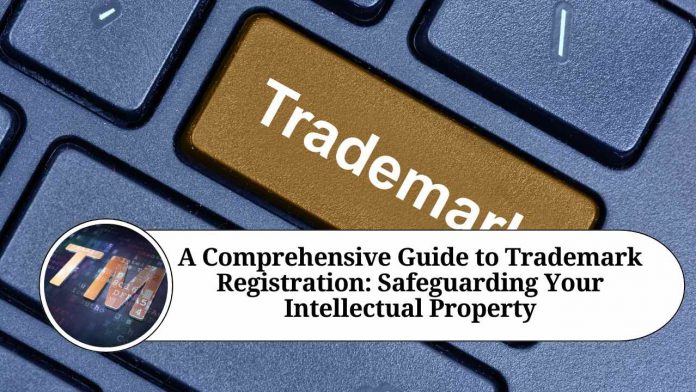Introduction
In today’s competitive business landscape, intellectual property plays a pivotal role in establishing a brand’s identity and maintaining a competitive edge. One crucial aspect of protecting your intellectual property is securing trademark registration. Registering a trademark provides legal recognition and exclusive rights to the owner, preventing others from using similar marks that could create confusion in the marketplace. In this blog, we will explore the fundamentals of trademark registration and its importance for businesses.
What is a Trademark?
A trademark is a unique symbol, logo, design, word, phrase, or combination thereof that distinguishes goods or services of one company from those of others. It serves as a brand identifier, helping consumers recognize and differentiate products or services in the marketplace. Trademarks can be incredibly valuable assets, representing the reputation and quality associated with a particular brand.
The Importance of Trademark Registration:
- Exclusive Rights: Registering a trademark grants the owner exclusive rights to use the mark in connection with specific goods or services. This prevents others from using a similar mark that could create confusion among consumers and dilute the brand’s reputation.
- Brand Protection: Trademark registration acts as a powerful deterrent against potential infringers. It provides legal grounds for taking action against unauthorized use or infringement, allowing brand owners to protect their reputation and market share.
- Market Recognition: A registered trademark helps build consumer trust and recognition. It enables businesses to establish a unique brand identity, making it easier for consumers to identify and choose their products or services over competitors.
Trademark Registration Process:
- Trademark Search: Before filing a trademark application, conducting a comprehensive search is crucial to ensure that your proposed mark is not already in use or similar to an existing registered mark. This minimizes the risk of potential conflicts and strengthens your application.
- Filing the Application: Once the search is complete, you can proceed with filing a trademark application with the relevant intellectual property office. The application includes details such as the mark itself, its classification, and the goods or services associated with it.
- Examination and Publication: After filing, the trademark office will examine your application for compliance with legal requirements. This examination process includes assessing distinctiveness, potential conflicts with existing marks, and adherence to formalities. If the application meets all requirements, it will be published in the official gazette to allow for opposition by third parties.
- Opposition and Registration: During the publication period, third parties can oppose the registration of your mark if they believe it conflicts with their existing rights. If no opposition is filed or successfully defended, the trademark office will issue a registration certificate, granting you exclusive rights to the mark.
Maintaining and Renewing Your Trademark: Trademark protection is not indefinite; it requires periodic renewal to maintain exclusivity. Typically, trademarks must be renewed every few years, depending on the jurisdiction. Failing to renew your trademark within the specified timeframe can result in the loss of rights. Therefore, it’s essential to stay vigilant and keep track of renewal deadlines to ensure continuous protection.
Conclusion
Trademark registration is a critical step in safeguarding your intellectual property and establishing a unique brand identity. It provides legal protection, exclusive rights, and the ability to take legal action against potential infringers. By securing trademark registration, you can enhance your brand’s reputation, foster consumer trust, and gain a competitive advantage in the marketplace. Remember to consult with legal professionals or trademark experts to navigate the registration process smoothly and ensure the best possible protection for your valuable intellectual property.V
Other Related Blogs: Section 144B Income Tax Act
Frequently Asked Questions (FAQs)
Q. What is a trademark?
A trademark is a distinctive symbol, logo, word, phrase, or design that identifies and distinguishes goods or services of one business from those of others.
Q. Why is trademark registration important?
Trademark registration provides legal recognition and exclusive rights to the owner, preventing others from using similar marks that could cause confusion in the marketplace. It helps protect your brand’s identity, reputation, and market share.
Q. How long does trademark registration last?
Trademark registration can last indefinitely, provided you continue to use the mark in commerce and renew it periodically as required by the intellectual property office. The duration varies from country to country.
Q. Can I use the TM symbol without registering my trademark?
Yes, you can use the TM symbol to indicate that you claim ownership of a mark even without registration. However, it does not offer the same level of legal protection as a registered trademark.
Q. How long does the trademark registration process take?
The time for trademark registration varies depending on the jurisdiction and the complexity of the application. It can range from several months to over a year. In some cases, expedited or fast-track options may be available at an additional cost.
Q. Do I need an attorney to register a trademark?
While it is not mandatory to hire an attorney, it is highly recommended, especially if you’re unfamiliar with the process. An attorney specializing in intellectual property law can guide you through the application, conduct a thorough trademark search, ensure compliance, and increase the chances of successful registration.
Q. Can I trademark a common word or phrase?
It is possible to trademark common words or phrases if they are used in a unique or distinctive manner in connection with specific goods or services. However, the process may be more challenging, as the trademark office may consider the mark too generic or descriptive.
Q. Can I register a trademark internationally?
Trademark rights are generally territorial, meaning they are valid only in the country or region where they are registered. However, some mechanisms, such as the Madrid System, allow for international trademark registration by filing a single application with multiple countries.
Q. What happens if someone infringes on my trademark?
If someone infringes on your trademark rights by using a similar mark without permission, you have the right to take legal action against them. This may involve sending cease-and-desist letters, negotiating settlements, or pursuing litigation to enforce your rights and seek damages.
Q. Can I modify or update my registered trademark?
Minor modifications to a registered trademark, such as changes in font, color, or size, may be possible through a trademark amendment process. However, significant changes that alter the distinctive character of the mark may require filing a new trademark application.




















